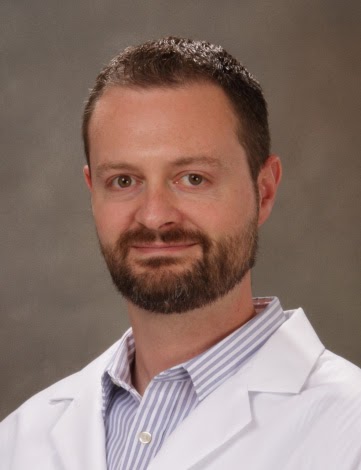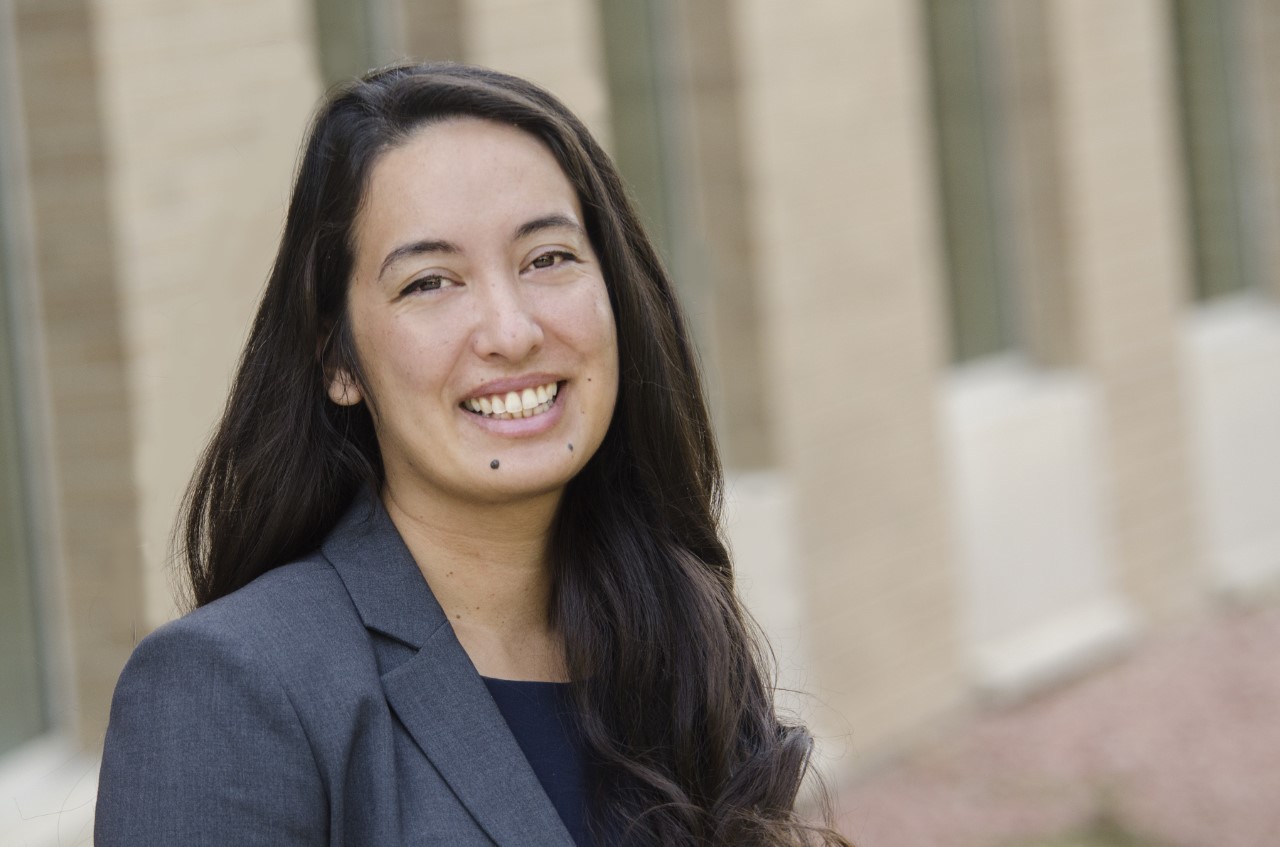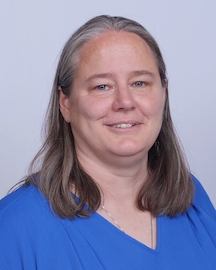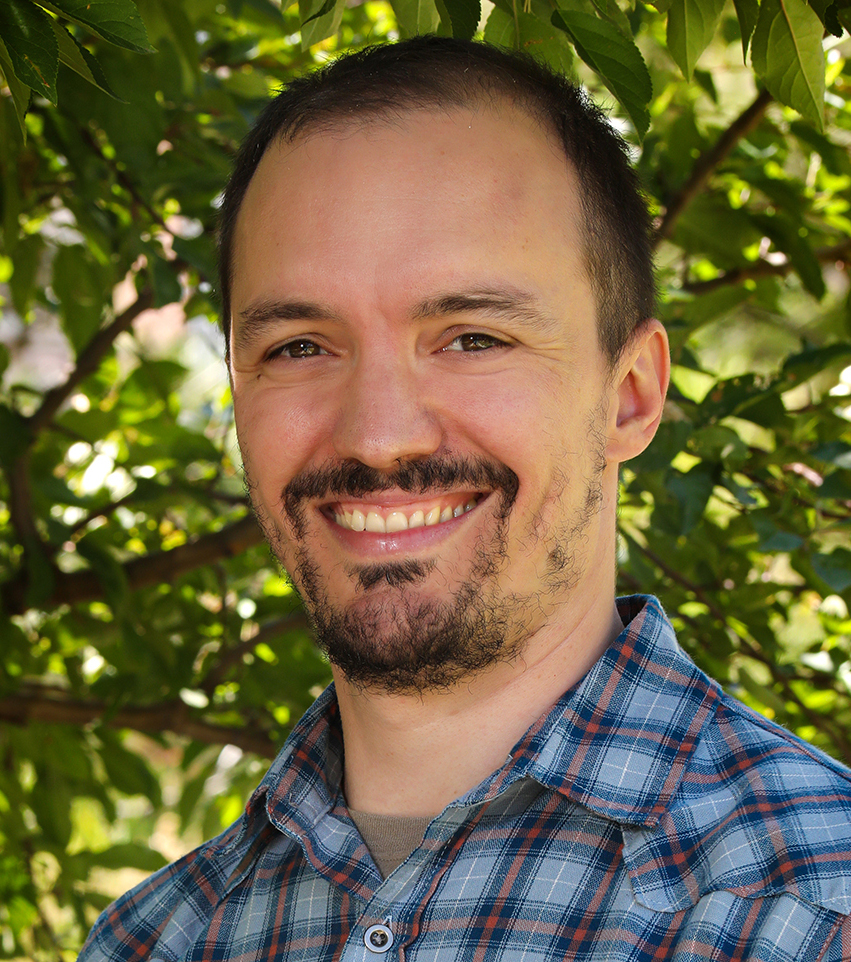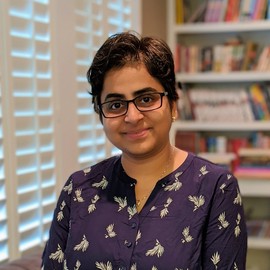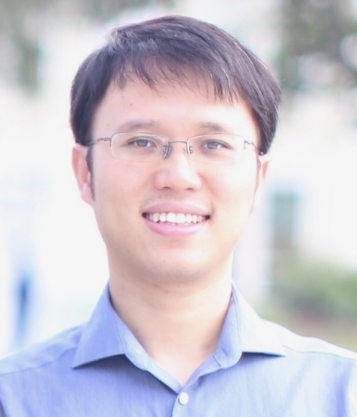FACULTY & RESEARCH
Our Expertise and Leadership
Our outstanding faculty, staff, trainees and alumni have come to Colorado from around the world. Before joining our program, they trained at Harvard, Yale, Stanford, Berkeley, Johns Hopkins, and other top universities.
The Computational Bioscience core and affiliated faculty work in a wide range of areas, including genomics, metabolomics, microbiome research, systems genetics, cancer research, image analysis, clinical research informatics, and many other fields that span the spectrum of biomedical research from the molecular to the clinical. They have appointments in numerous departments on three CU campuses, including Medicine, Pharmacology, Biostatistics and Informatics, Biochemistry & Molecular Genetics, Computer Science, and Bioengineering; including faculty from National Jewish Health.
Research Areas
- AI Solutions in Clinical Settings
- Biological Data Visualization
- Biomedical Ontology
- Cell Imaging Analysis
- Clinical Decision Support
- Clinical Informatics
- Clinical Research Informatics
- Computational Neuroscience
- Computational Pharmacology
- Genome Informatics
- Health Care Process Modeling & Analysis
- Imaging Informatics
- Machine/Deep Learning
- Metagenomics & Microbiome Analysis
- Medical Image Computing
- Molecular Evolution
- Natural Language Processing
- Network Analysis
- Omics Analysis
- Personalized Medicine
- Single-Cell Multi-Modal Data Integration
- Text Mining
- Translational Bioinformatics
- Visual Analytics
Faculty
Search
Filter results by:
Mazen Al Borno PhD
Assistant Professor
Without being conscious of it, our motor system is constantly solving computationally challenging problems in ways that astonish both roboticists and neuroscientists. We develop computational models of animal movement to understand how the brain generates movement and design novel rehabilitation therapies and assistive devices for patients with movement disorders. We collaborate closely with neuroscientists, clinicians and roboticists to study the brain and help patients achieve a better quality of life.
Email:[email protected]
David Albers PhD
Associate Professor
Dr. David Albers lab focuses on advancing biomedicine using:
-data assimilation of both clinician and patient collected data to forecast physiology and compute new phenotypes
-health care process modeling and analysis
-temporal-focused spectral analysis and information theoretic tools
-mechanistic physiologic models using clinical data
-discovering phenotypes using temporal information within clinical data
-visualizing patient health evolution in an intensive care setting
-deconvolving biases present in clinical data
-computational machinery based on variational inference to discover features that can be used to define phenotypes and other clinically actionable quantities
Email:[email protected]
Harrison Bai MD
Associate Professor
Vice Chair Clinic Research Rad
The AI Medical Imaging Lab is a multidisciplinary group at the intersection of radiology, biomedical engineering, and machine learning. Its mission is to create reliable AI systems that make imaging interpretation faster, more consistent, and more predictive—and to deliver those systems safely into real clinical use.
Methodologically, the Lab focuses on foundation and vision-language models that align imaging with radiology reports and clinical data, enabling automated structured reporting, robust lesion detection/segmentation, longitudinal response assessment, and survival/risk prediction.
Clinically, the research spans FDG and PSMA PET/CT in oncology, CT for pulmonary embolism risk stratification, and multimodal pipelines combining imaging with electronic health record signals.
The Lab emphasizes large-scale and generalizable solutions through multi-institutional datasets, rigorous data harmonization, externally validated benchmarks, and collaborative translational partnerships (e.g., with other major sites and industry).
Ultimately, the goal is simple and powerful: AI that is accurate, reliable, and useful—improving reports, decisions, and outcomes for patients.
Email:[email protected]
Tell Bennett MD
Professor
We focus on clinical decision-making, particularly in high-risk environments such as intensive care units, and on the development and implementation of informatics and data science methods and tools to improve outcomes.
Email:[email protected]
James Costello PhD
(he/him/his)
Associate Professor
Pharmacology Program Director
Completed Upstander/Bystander Training, Completed Mentor Training Course
Within the broad scope of systems biology, my lab focuses on 3 research areas: 1) Network inference for identifying drug targets, 2) Predicting drug sensitivity from -omics datasets, and 3) Modeling temporal effects of drug combinations.
Email:[email protected]
Harriet Dashnow PhD
(She/Her)
Assistant Professor
Completed Mentor Training Course; Completed Upstander/Bystander Training
We develop and apply computational methods for the diagnosis and discovery of the genetic basis of rare diseases. The lab has a special emphasis on Short Tandem Repeats and other hard-to-genotype variants.
Email:[email protected]
Natalie Davidson PhD
(She/Her)
Assistant Professor
Completed Mentor Training Course
Our lab is driven by three core pillars: cutting-edge methods development, deep exploration of ovarian cancer biology, and a commitment to real-world translational impact. While machine learning has transformed our many aspects of our lives, applying it to ovarian cancer—an uncommon and highly heterogeneous disease—presents unique challenges. Our lab builds and applies advanced computational methods to make the most of available data, integrating diverse, high-throughput sequencing datasets across different modalities and scales. If you're excited by the intersection of AI, cancer research, and human health, join us.
Email:[email protected]
Daniel Denman PhD
(He/Him)
Assistant Professor
Completed Mentor Training Course
We are interested in how populations of neurons generate sensory perceptions. We use quantitative psychophysics, in vivo electrophysiology and neurostimulation, in vivo imaging, circuit tracing, optogenetics, and computational methods to study and manipulate the dynamics of populations of single neurons. We are also focused on how neural interactions specifically - within areas and distributed across the brain - generate successful perceptions.
Email:[email protected]
Robin Dowell DSc
Professor
Completed Mentor Training Course
Our primary interest is in understanding transcriptional regulation: how does it work, evolve, and respond to perturbations? To this end, we are leveraging a variety of experimental and computational approaches. In general, we seek to develop principled, biologically informed machine learning approaches to identify causal relationships within transcriptional regulatory networks.
Email:[email protected]
Yanjun Gao PhD
(She/Hers)
Assistant Professor
Completed Mentor Training
By developing foundational technologies and conducting cutting-edge research in natural language processing (NLP) with innovative artificial intelligence (AI), my lab is dedicated to creating powerful tools that tackle critical healthcare challenges and integrate seamlessly into healthcare systems.
Email:[email protected]
Casey Greene PhD
Professor
Completed Upstander/Bystander Training, Completed Mentor Training Course
The Greene lab focuses on performing open, reproducible, and inclusive research on topics at the intersection of machine learning, public data, and the transcriptome.
Email:[email protected]
Audrey Hendricks PhD
Associate Professor
The Hendricks’s team mission is to be the lynch pin between biomedical research and statistical and machine learning method development. Sitting at the interface between the applied and the theoretical enables our team to develop and apply methods to improve the utility and equity of large, publicly available genetic data resources, identify the biological mechanisms of healthy diets, and elucidate the genomic underpinnings of conditions and traits.
Email:[email protected]
Katerina Kechris PhD
(She/Hers)
Professor
Computational Bioscience Program Director
Completed Upstander/Bystander Training; Completed Mentoring Training; Completed Student Wellness Advocate Training
Dr. Kechris’ research is focused on the development and application of statistical and computational methods for analyzing omics data sets through multiple stages of the data life cycle including processing, storage, analysis, modeling, and visualization. Specific areas include: (1) analyzing transcription factor binding and miRNA data to study regulation, (2) examining the genetic and epigenetic factors controlling gene expression, (3) exploring the metabolome and (4) integrating multi-omics data. She collaborates with investigators studying chronic obstructive pulmonary disease in the COPDGene genetic epidemiology study, substance use disorders using animal models, and early life determinants of diabetes and obesity in children.
Email:[email protected]
Arjun Krishnan PhD
Associate Professor
Computational Bioscience Program Co-Director
Completed Mentor Training Course; Completed Upstander/Bystander Training
Our group develops machine learning (ML)- and AI-based methods and tools that take advantage of diverse and massive public data collections to gain nuanced insights into the genetic, molecular, and cellular basis of complex diseases. The data collections we work with include genotype-phenotype associations, bulk and single-cell omics profiles, genome-scale molecular networks, unstructured text corpora, and ontologies/knowledgebases. Our methods and tools enable biomedical researchers to reuse these public data effectively, seamlessly, and at scale to generate novel data-driven hypotheses about a variety of biomedical contexts. We are also passionate about rapid and open science, well-rounded professional training, and creating diverse and inclusive learning environments.
Email:[email protected]
Ryan Layer PhD
Assistant Professor
The lab focuses on developing methods that can leverage population-scale datasets to understand better how genetic variation affects human health.
Email:[email protected]
Catherine Lozupone PhD
Associate Professor
We combine bioinformatics and experimental work to understand the driving factors of human microbiota composition, host:microbe interactions, and the intersection with diet in a variety of disease contexts. Our work has a particular focus on HIV-positive and high HIV-risk populations, cancer and Clostridioides difficile infection.
Email:[email protected]
James Mitchell PhD
(He/Him)
Assistant Professor
Computational Bioscience Program Co-Director
Dr. James Mitchell's research encompasses AI, HCI, UCD, mobile applications, and wearables. His studies investigate augmented reality applications for public engagement and user-centered design for clinical guidelines on mobile devices. He measures healthcare professionals' experiences with AI technologies and leverages allied health data to improve AI applications, focusing on social determinants of health and intersectionality. Additionally, Dr. Mitchell designs user-centered solutions and explores the potential of large language models (LLMs) in both clinical settings and user-centered design studies. His work aims to advance healthcare technology through innovative AI solutions and user-centered design methodologies.
Email:[email protected]
Milton Pividori PhD
(he/él)
Assistant Professor
Completed Upstander/Bystander Training; Completed Implicit Bias Training
Our ultimate goal is to advance precision medicine by developing a comprehensive, multi-omics approach to understanding the complex interplay between genetics and disease. Our research focuses on developing novel machine-learning methods to advance key computational aspects of precision medicine. We have a particular interest in the integration of genetic studies with relevant molecular patterns extracted from multi-omics data. For this, we aim to develop the next generation of methodologies that will consolidate large and heterogeneous sources of biomedical information to extract biological insight to improve human health.
Email:[email protected]
David Pollock PhD
Professor
Protein, RNA, and other functional molecules that exist in living organisms are the product of millions of years of evolution. The substitutions that have occurred over the years had to have been compatible with the constraints of structure and function, and thus the evolutionary record provides critical data for understanding macromolecular structure/function/sequence relationships. In our laboratory, we use the techniques of molecular evolution, computational biology, and evolutionary genomics to exploit this record to make inferences about past biological events and to make testable predictions about the effects of mutations.
Email:[email protected]
Janani Ravi PhD
Assistant Professor, IMMU Special Graduate Faculty Appointment
Completed Mentor Training Course; Completed Equity Certificate; Completed Upstander/Bystander Training; Completed DEI Training
Dr. Janani Ravi is an Assistant Professor in the Dept. of Biomedical Informatics with ties to Dept. of Immunology and Microbiology. She completed her PhD in Computational Biology at Virginia Tech, postdoctoral research at the Rutgers Public Health Research Institute, and started her research group at Michigan State University prior to moving to CU in late 2022. Dr. Ravi’s research group, JRaviLab, develops general-purpose computational approaches that integrate large-scale heterogeneous public datasets for mechanistic understanding of microbial genotypes, phenotypes, and diseases.
The JRaviLab asks:
How do we link pathogen genotypes to phenotypes?
How can host responses to infection inform disease mechanistics and therapeutics?
Her group provides open data/software and easy-to-use web applications for biomedical researchers, and the methods are developed to be pathogen- and disease-agnostic. Dr. Ravi is currently supported by an NIH NIAID U01 (antimicrobial resistance prediction) and R21 (host responses, host-directed therapeutics), two CU CPMR-DBMI dyads (bone health, implant corrosion), Colorado Translational Research Scholar Program, and an NIH NLM T15 supporting her postdoc.
Dr. Ravi is engaged and committed to mentoring/training, education, and outreach, and creating and sustaining diversity and inclusivity in data science for learners and professionals alike, focused on increasing the participation of underrepresented minorities in the field. She founded R-Ladies East Lansing and R-Ladies Aurora, and co-founded Women+ Data Science and AsiaR. She also co-chairs the R/Bioconductor Community Advisory Board.
Email:[email protected]
Laura Saba PhD
Associate Professor
Completed Mentor Training Course; Completed Upstander/Bystander Training
We utilize and develop systems genetics tools to explore biological mechanisms responsible for disease.
Email:[email protected]
Melike Sirlanci PhD
(She/Hers)
Assistant Professor
The overarching theme of my research program is to develop clinical and patient decision support tools to aid the decision-making process of healthcare professionals and patients in disease management. I aim to develop such tools in several settings, including the glycemic management of type 2 diabetes patients and intensive care unit patients and treatment outcome prediction for cancer patients. For these purposes, I use many tools, from knowledge-based physiological mechanistic models to purely data-driven machine-learning models.
Email:[email protected]
Michael Strong PhD
Associate Professor
Dr. Strong’s research focuses on synergistic genomic, computational and molecular strategies to disease and disease pathogenesis. I am particularly interested in developing and applying computational methods to better generate, integrate and analyze genomic and proteomic information, with a focus on respiratory disease and disease pathogens, including Mycobacterium tuberculosis.
Email:[email protected]
John Thompson PhD
(He/Him)
Associate Professor
Completed Mentor Training Course, Completed Unconscious Bias Training, Completed Implicit Bias Training
Our computational neuroscience research program uses advanced signal processing and quantitative modeling to achieve three main goals: (1) analyze and interpret large-scale neural data, (2) develop and validate computational models of brain function, and (3) translate these findings to broader scientific and clinical contexts. By integrating experiments, theoretical perspectives, and computational techniques, we aim to deepen our understanding of how neural circuits drive cognition and behavior. Ultimately, our work strives to transform these insights into innovative technologies and meaningful improvements in human health.
Email:[email protected]
Gregory Way PhD
Assistant Professor
Completed Upstander/Bystander Training; Completed Mentor Training Course
The mission of our lab is to reduce human suffering by integrating biomedical data science and software engineering into drug discovery by developing new computational methods, innovative approaches, assays, and software for analyzing high-dimensional genomic, molecular, and microscopy data with a focus on pediatric diseases, including pediatric cancer and Neurofibromatosis Type 1 (NF1).
Email:[email protected]
Fuyong Xing PhD
Assistant Professor
His research focuses on medical image computing, imaging informatics, and machine learning.
Email:[email protected]
Fan Zhang PhD
Assistant Professor
IMMU Special Graduate Faculty Appointment
Completed Mentor Training Course; Completed Upstander/Bystander Training
The Zhang lab develops advanced statistical machine learning methods and systems immunology approaches for translational medicine. Specifically, we focus on 1) novel computational method development, 2) large single-cell multi-modal sequencing data integration, 3) cutting-edge systems immunology approaches, and 4) disease association modeling for translational medicine.
Email:[email protected]




